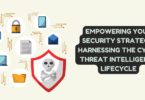
Traditional to Inbound: Marketing Strategies for Multichannel Campaigns
Traditional marketing tactics are no longer sufficient in today’s fast-paced digital marketplace to interest and engage the modern customer. To stay competitive, businesses need to adapt their strategies to embrace inbound marketing methodologies and leverage the power of multichannel campaigns.
As stated in a Forbes article, younger generations and industries that place a high value on personal relationships, such as healthcare, show a greater preference for the inbound marketing approach. This approach is favored by younger individuals who prioritize personalization and being treated as individuals rather than mere numbers.
In this article, we will explore the key strategies and insights to transition from traditional to inbound marketing.
The Shift From Traditional to Inbound Marketing
In today’s rapidly evolving marketing landscape, there has been a significant shift from traditional marketing approaches to inbound marketing strategies. Inbound marketing, as opposed to traditional strategies that rely on interruptive advertising, focuses on attracting, engaging, and satisfying consumers through rich content and tailored experiences.
According to Gartner, prioritizing customer centricity means placing the customer at the core of all decisions involving the delivery of products, services, and experiences. The primary objective is to assure client happiness, develop loyalty, and inspire advocacy.
This customer-centric approach resonates particularly well with younger generations, who prioritize authenticity and seek meaningful connections with brands. By adopting inbound marketing, businesses can establish themselves as trusted industry leaders, build lasting relationships, and drive customer loyalty.
Embracing Multichannel Marketing
Consumers connect with companies through a variety of channels in the digital age, including email, websites, social media, and mobile apps. Adopting a multichannel marketing approach is critical for firms to successfully reach and connect with their target audience.
By leveraging various channels, businesses can create consistent messaging and provide seamless experiences across platforms. This approach enables them to meet customers where they are, increase brand visibility, and foster engagement. A well-executed multichannel marketing strategy enables businesses to expand their reach, generate leads, and ultimately drive conversions.
Crafting Compelling Content
Inbound marketing is all about content. Businesses must focus on providing valuable, informative, and captivating content in order to attract and engage customers. This may take many different forms, including blog entries, videos, podcasts, and immersive experiences.
By offering content that addresses customer pain points, educates, entertains, or inspires, businesses can establish thought leadership, build trust, and position themselves as valuable resources in their respective industries. In addition to attracting new consumers, compelling content nurtures existing leads, helping them through the buyer’s journey and eventually generating conversions.
Leveraging Marketing Automation
Marketing automation plays a pivotal role in streamlining marketing efforts and nurturing leads effectively. Businesses may use automation technologies to automate repetitive processes such as marketing via email, scoring leads, and segmenting clients.
As stated by CMS Wire, marketers can enhance their ROI through the use of marketing automation. This technology enables real-time tracking of campaign effectiveness, allowing for immediate optimization of messaging and targeting strategies.
Furthermore, marketing automation delivers significant insights into customer behavior and preferences, allowing marketers to create more targeted and effective campaigns.
This enables marketers to focus on high-value activities, such as crafting personalized campaigns, analyzing data, and optimizing strategies. Marketing automation enhances efficiency, improves scalability, and enables businesses to deliver timely, relevant messages that resonate with their audience.
Businesses may nurture prospects, move them through the sales funnel, and ultimately boost conversions by utilizing automation efficiently.
Partnering With a HubSpot Certified Agency
Collaborating with a HubSpot certified agency partner brings added expertise and proficiency to inbound marketing strategies. These agencies have undergone specialized training and demonstrated their ability to implement HubSpot’s tools and methodologies effectively.
Working with a certified agency allows businesses to tap into a wealth of experience and knowledge in executing inbound marketing campaigns, developing robust strategies, and leveraging automation tools.
ConnectionModel notes that a HubSpot-certified agency understands the intricacies of inbound marketing, enabling businesses to benefit from tailored solutions, expert guidance, and ongoing support. By partnering with a certified agency, businesses can unlock the full potential of inbound marketing, drive growth, and achieve their marketing objectives with confidence.
Harnessing the Power of Data and Analytics
Data and analytics play a crucial role in the success of inbound marketing strategies. Businesses may obtain a better grasp of their target audience’s tastes and habits by employing data-driven insights. This insight enables marketers to recognize emerging trends, make educated decisions, and successfully maximize their marketing efforts.
Analyzing key performance indicators (KPIs) provides valuable insights into the effectiveness of marketing campaigns. These metrics help businesses measure the impact of their strategies, identify areas for improvement, and align their efforts with their overall goals.
Additionally, tracking user behavior and engagement enables marketers to understand how customers interact with their content, which channels they prefer, and what drives their decision-making process.
By utilizing data and analytics, businesses can refine their marketing strategies, personalize messaging, and target specific audience segments. This level of personalization and relevance fosters stronger connections with customers, increasing engagement and ultimately driving better results.
Final Thoughts
The transition from traditional marketing to inbound marketing and the integration of multiplatform campaigns are vital approaches for businesses to thrive in the contemporary digital landscape. By prioritizing customer-centricity and tailored experiences, businesses can establish genuine connections and foster loyalty among younger demographics.
Creating compelling content that addresses customer needs and guides them through the purchasing process is crucial for attracting and nurturing potential customers. Utilizing marketing automation streamlines efforts, enabling marketers to concentrate on valuable tasks and provide timely, pertinent messages.
Collaborating with a certified agency offers expertise and assistance while harnessing the potential of data and analytics empowers businesses to make well-informed decisions and optimize their campaigns. Embracing these strategies positions businesses for success and expansion in an increasingly competitive market.






